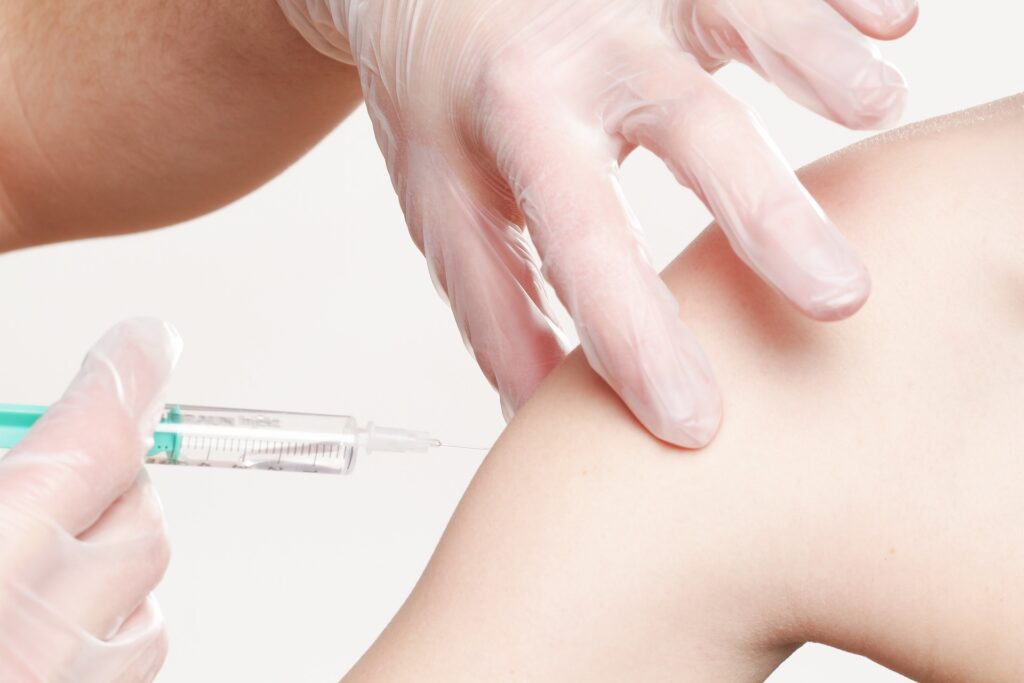The COVID-19 vaccine is here, and a new virus with a new vaccine means new protocols for triage nurses. Triage nurses play an important role in times like these; many patients have questions about the vaccine and if what they are feeling after receiving it is normal. A couple of COVID-19 vaccines require two shots spread apart to be effective, though there are new vaccines which only requires one. In this article, we’ll tell you about the new triage COVID-19 vaccine Schmitt-Thompson vaccine protocols, and what kind of outcomes to expect. These protocols are also available for free in our website.
When TriageLogic received the COVID-19 vaccine protocols from Drs David Thompson and Barton Schmitt, our first goal was to arm our remote triage nurses with the information in a manner that was effective and efficient. Since the vaccines were new and developed in record time, we knew that patients would have plenty of questions or even hesitancies. Remote nurse triage is important to not just determine next care steps, but to also be a line of reassurance and information for patients. The vaccine guidelines should be used if the patient believes they are having a reaction to a COVID-19 vaccination (immunization) or if the caller has questions about the COVID-19 vaccine. These protocols also covered general COVID-19 symptoms for callers that have been exposed.
A. Common Concerns
When a patient receives their vaccine, it’s important to know what is common and usually benign. In a snapshot, the vaccine protocol gives you this information and what to expect from a patient caller who has basic concerns:
⦁ Local injection site symptoms such as pain, redness, and swelling usually last 1 to 3 days.
⦁ Systemic reaction symptoms such as chills, fatigue, fever, joint pain, headache, muscle aches usually last 1 to 2 days.
⦁ Vaccine reaction symptoms may rarely last up to a week.
⦁ The following symptoms are NOT from a vaccine reaction: cough, difficulty breathing, loss of taste or smell, runny nose, sore throat.
The COVID-19 vaccine does leave many with uncomfortable symptoms, especially in the first 24 to 48 hours. Deciding on what symptoms are normal and can be treated at home and which require more triage is the goal of this protocol.
B. Initial Assessment Questions for Patients that Receive a Vaccine
To separate those who may have more serious reactions from the vaccine, there are a few questions that a triage nurse should ask. Keeping these questions standard from caller to caller can ensure that the right outcome is selected. As in all nurse triage protocols, the goal is a high standard of care. These questions can be reviewed in more detail by downloading our free COVID-19 protocols. The questions should focus on the following:
- Main concern or symptom
- Vaccine: clarify if the patient got a vaccine and which vaccine
- Symptom severity
- Additional questions such as fever, past reactions and other symptoms
There are a few outcomes that could potentially be reached depending on severity of symptoms; Call EMS 911 Now, Go to ED Now (or PCP triage), See HCP within a certain timeframe (4 hours, 24 hours, 2 weeks, etc.), or Home Care.
Additionally, it may be time well spent to familiarize yourself with the frequently asked questions about the vaccine. Many times, home care is the best option. It’s important to let the patient know that these side effects may feel like flu and may even affect your ability to do daily activities, but they should go away in a few days. There are many good tips to give the patient which can help make them more comfortable. Some of these tips include:
- Apply a clean, cool, wet washcloth over the area
- Use over the counter pain relievers, such as ibuprofen and acetaminophen
- Use or exercise your arm
- Drink plenty of fluids
- Dress lightly (especially if experiencing fever)
The common symptoms of the COVID-19 vaccine should be examined closer if they last longer than a few days, and nurses should inform the patient that if the symptoms extend past that time they should call back.
C. Common Questions from Patients
In conjunction with the protocols, it’s helpful for a nurse to have answers to common questions ready. Some of these questions include:
Is the COVID-19 Vaccine Safe?
⦁ Yes. The vaccine is safe.
⦁ The side effects are similar to other vaccines, such as the flu shot (influenza), tetanus, or shingles. ⦁ Like all vaccines there is always a chance of a more serious side effect. However, serious side effects, such as an allergic reaction, are rare.
How Can I Report a Bad Reaction to the COVID-19 Vaccine?
⦁ Anyone, including parents and patients, can report a bad reaction.
⦁ Canada: In Canada use the Reporting Adverse Events Following Immunization (AEFI) system. The reporting form can be found at: https://www.canada.ca/en/public-health/services/immunization/reporting-adverse-events following-immunization/form.html.
⦁ United States: The best way to report is to use the Vaccine Adverse Event Reporting System (VAERS) website. There is an online form at: https://vaers.hhs.gov/reportevent.html.
Can the COVID-19 Vaccine Change My DNA (Genes)?
⦁ No.
⦁ None of the COVID-19 vaccines work by entering the nucleus (where your DNA is located).
⦁ They cannot change a person’s DNA. Instead, they work with a person’s immune system to fight the virus.
Do I Need to Still Wear a Mask After I Have Received the COVID-19 Vaccine?
⦁ Yes.
⦁ The COVID-19 vaccine is highly effective. However, no vaccine is perfect.
⦁ Protect yourself and others. Wear a mask when you are outside your home and in any indoor space or public place.
These are just a few sample questions. There are many more that may come up, and it’s imperative that a triage nurse can answer these with confidence and assurance.
Access to the Full COVID-19 Vaccine Protocol
The COVID-19 vaccine protocols several more questions and symptoms. TriageLogic has compiled this information and our telephone nurse triage team is equipped with these protocols. Our ultimate goal is to extend access to healthcare to as many people as possible, and we have made these protocols, and more like them, available to the public for free. Click here to create an account, and you will have access to the full spectrum of COVID-19 triage care. The Schmitt-Thompson vaccine protocols compliment the COVID-19 diagnosed or suspected protocols. You receive both of these documents in our download. We also offer free courses for nurses in our Learning Center. Contact us today to discuss your needs and we will set up a customized plan that works best for your organization and your patients.






